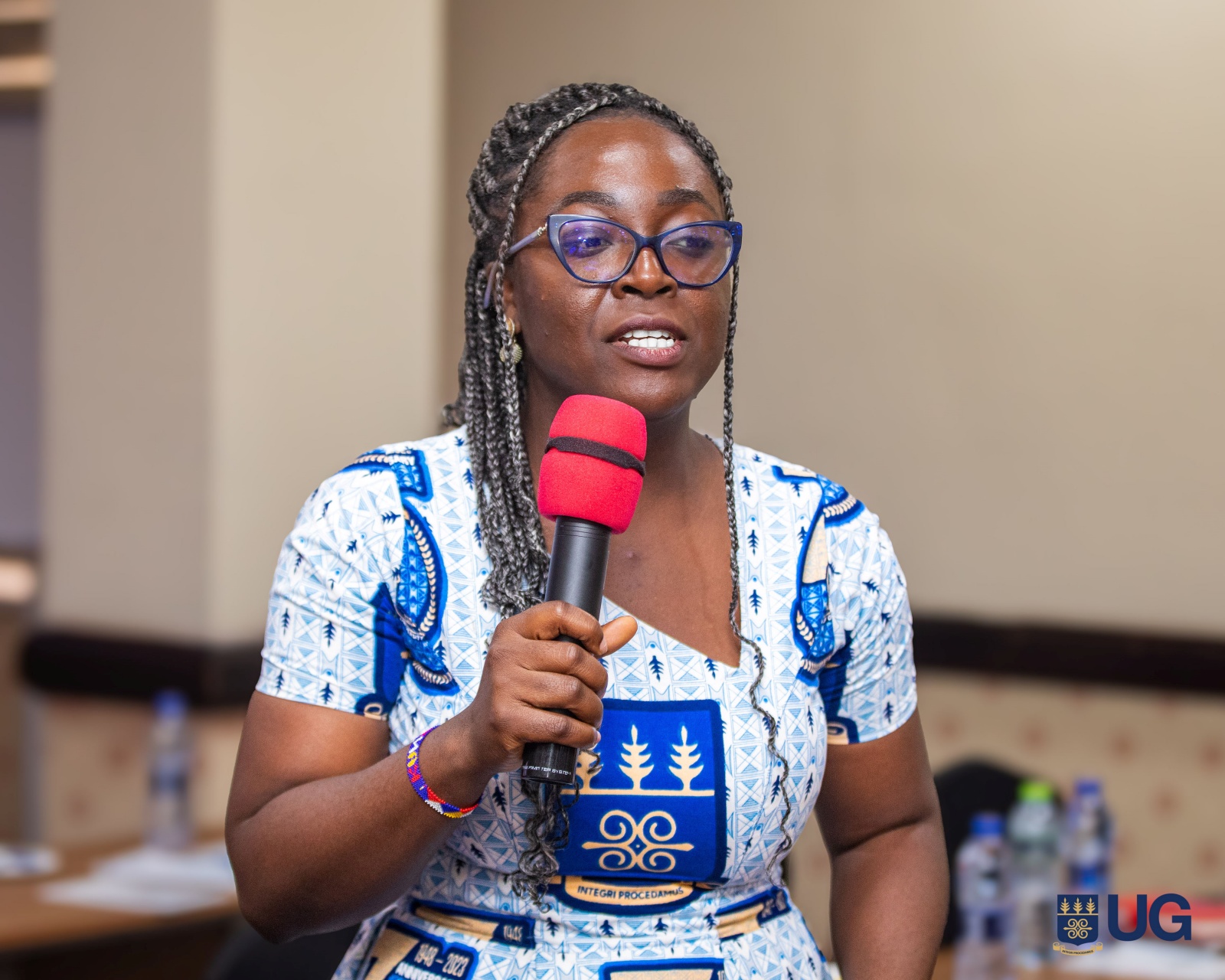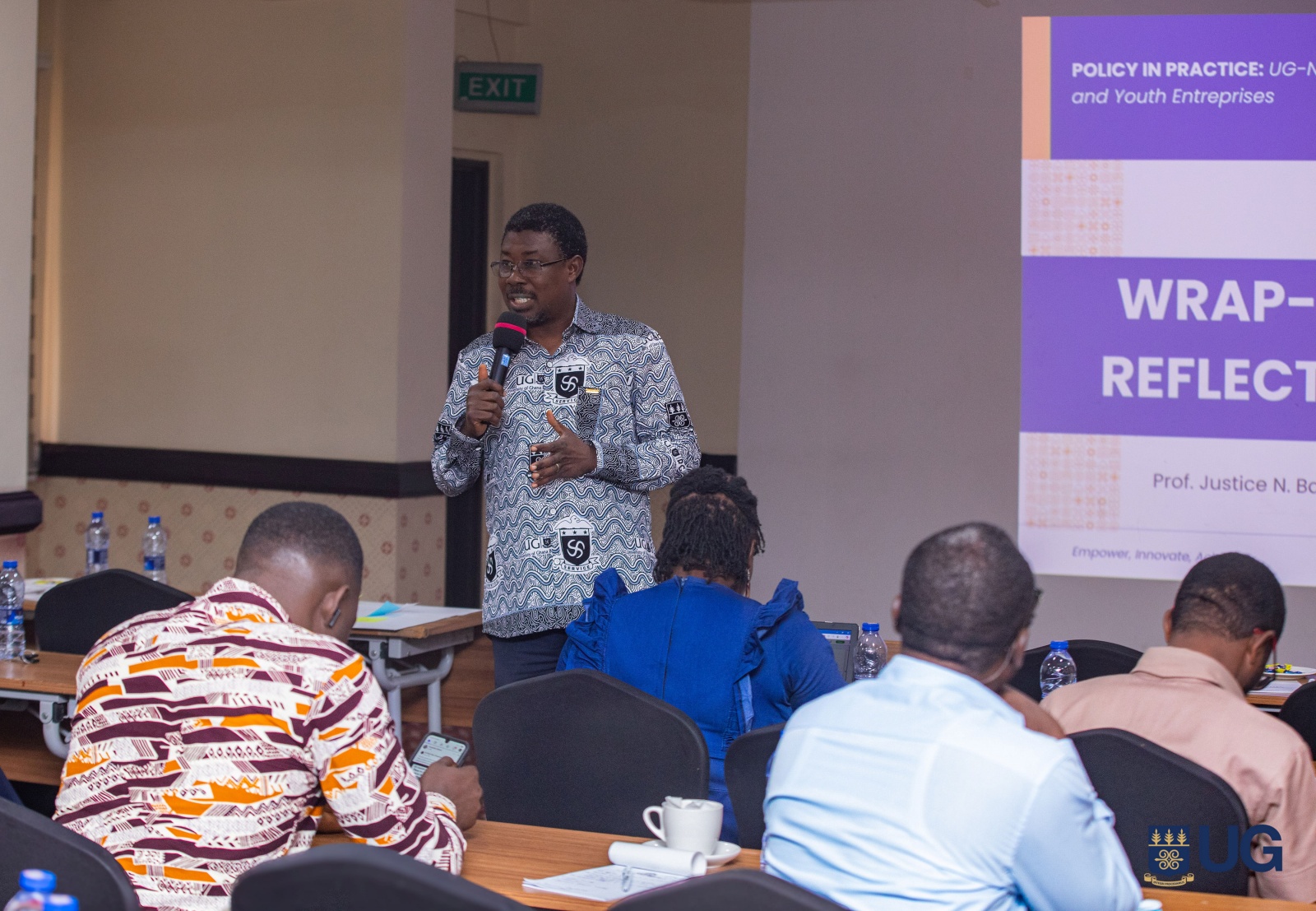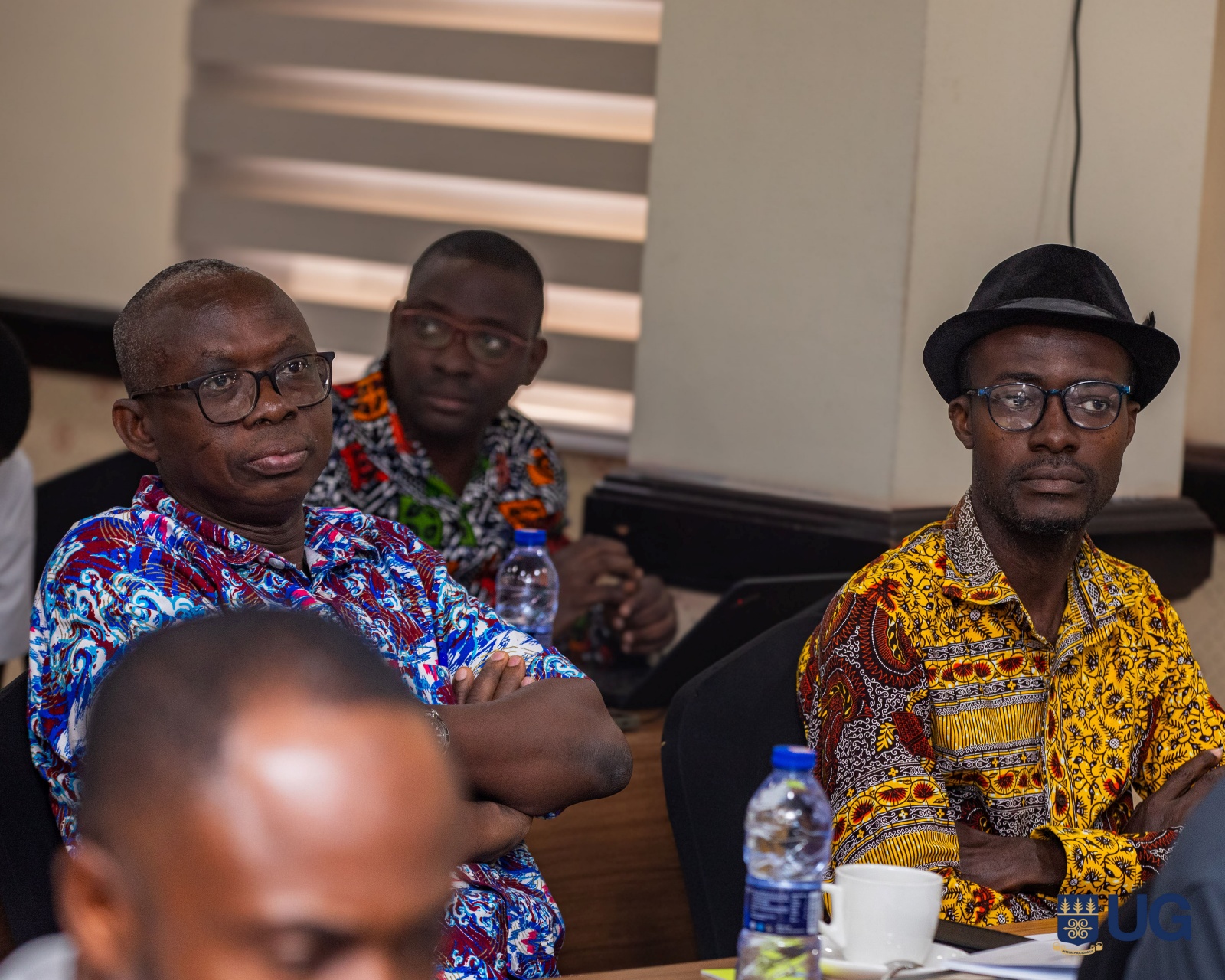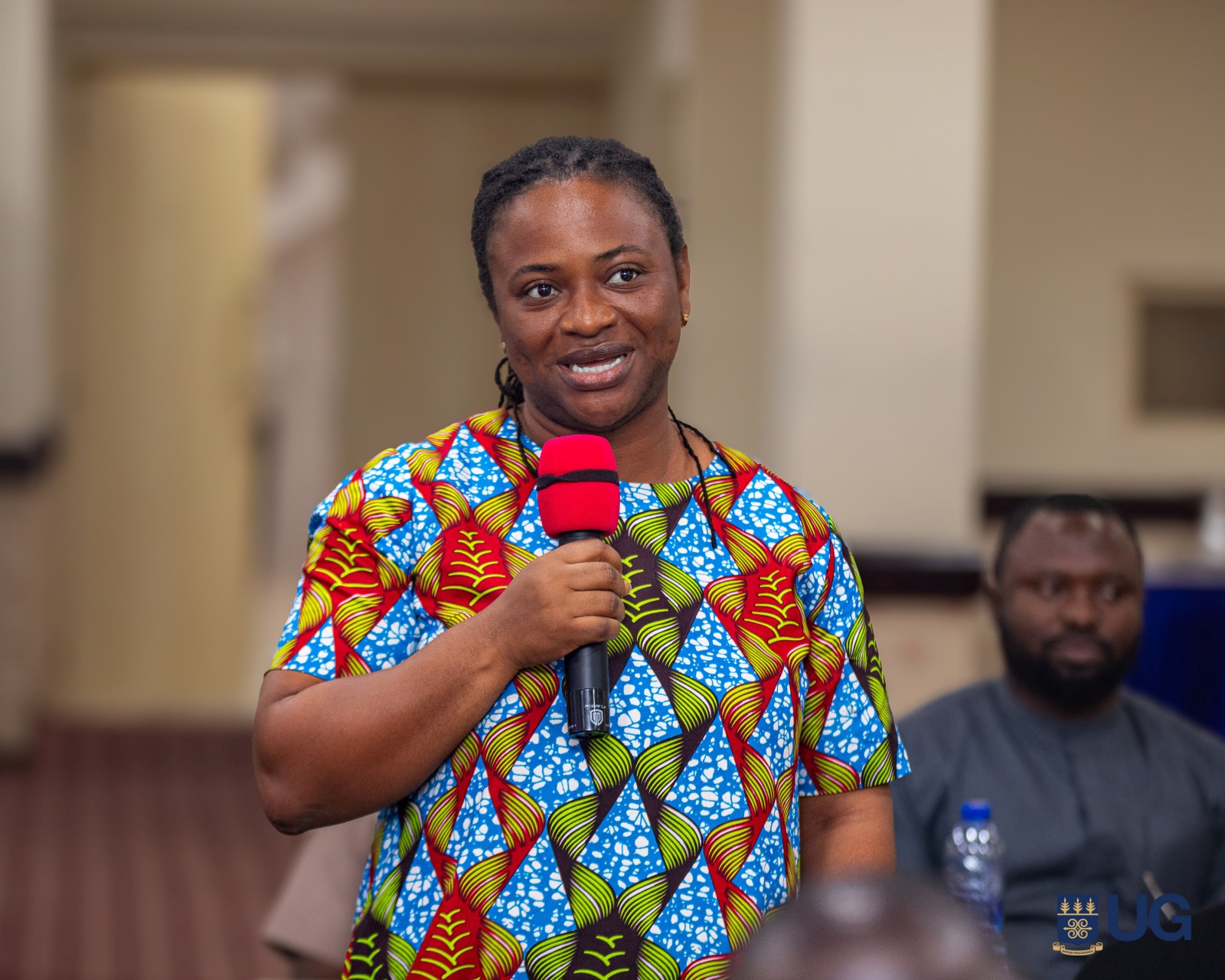Stakeholders Advocate for Stronger Engagement Between Regulators and Agrifood Entrepreneurs

A one-day policy dialogue organised by the University of Ghana’s Nkabom Collaborative has brought together key stakeholders to push for stronger collaboration between regulatory agencies and agrifood entrepreneurs. The purpose was to enable the stakeholders to tackle systemic challenges hindering innovation and job creation in Ghana’s food systems.
The dialogue, themed “Policy in Practice: Southern Belt Stakeholder Dialogue on Agrifood Regulation and Youth Enterprises,” forms part of the UG Nkabom Collaborative efforts to promote sustainable, youth-led agrifood enterprises in Ghana.
The event, which covered the Southern Sector made up of the Greater Accra, Central, Western, Western North, Eastern, Volta and Oti Regions, attracted representatives from academia, regulatory bodies including the Environmental Protection Agency (EPA), Ghana Revenue Authority (GRA), Social Security and National Insurance Trust (SSNIT), Ghana Enterprises Agency (GEA), Ministry of Food and Agriculture (MoFA), Office of the Registrar of Companies (ORC), Ghana Standards Authority (GSA) and the Food and Drugs Authority (FDA).
Other participants were drawn from the private sector and youth-led businesses to deliberate on aligning food systems policies with entrepreneurship support initiatives.
Speaking on behalf of the Principal Investigator for the UG Nkabom Collaborative, Prof. Richmond Aryeetey, the Pillar Lead for Education, Dr. Hayford Ayerakwa, highlighted the broader objectives of the Nkabom initiative, discussing the importance of viewing food systems as more than production for consumption.

“Agricultural production should not be limited to food for consumption. We need to consider pre-production, production and post-production stages and the opportunities each presents for entrepreneurs and investors,” Dr. Ayerakwa said. “The value chain has multiple points of entry, and we must ensure that women, young people, persons with disabilities and other vulnerable groups can access the support needed to leverage these opportunities.”
He added that one of the core pillars of the project, the Entrepreneurship Pillar, is centred around equipping young people with the skills and resources to develop ideas into viable agribusinesses. According to him, the 10-year span of the Collaborative’s work is essential to ensure sustainable transformation in Ghana’s food systems through collaboration and capacity building.
Ms. Sylvia Nyarko, Project Assistant at the UG Nkabom Collaborative and a Programmes Lead at the University of Ghana Business School’s Entrepreneurship Hub (UGBS NEST), shared progress on the Nkabom Bootcamp, which is recruiting youth-led agrifood startups.

“So far, 100 participants have been selected from a pool of over 160 applicants. We are now at the idea development stage, after which the top 50 and then 20 will be chosen for targeted support to refine and scale their concepts,” she explained. This, according to her, is to help the project achieve its target of creating 9,000 plus direct jobs and provide more opportunities for young people.
Sharing insights from preliminary studies involving multiple young entrepreneurs on Ghana’s regulatory frameworks, Prof. Justice Bawole, a policy lead on the Collaborative, underscored the need for an enabling environment that balances safety and compliance with innovation.
“We need to advocate for quality and safety in the food systems space, but at the same time, we cannot ignore the bottlenecks that frustrate young entrepreneurs,” Prof. Bawole stated. “Regulatory bodies must work hand in hand with innovators to ensure compliance processes do not stifle creativity and job creation,” he added.

The Policy Lead explained that early education on legal frameworks and regulatory processes is crucial to help startups avoid costly mistakes and delays.
Some of the challenges Prof. Bawole mentioned included “lengthy registration, licensing and certification processes that often take several months, delaying operations.” Prof Bawole also revealed conflicting requirements across multiple agencies, such as the FDA and GSA, whose food safety guidelines do not always align. In addition, agencies like MoFA and EPA impose separate environmental compliance requirements, creating duplication and inefficiencies.
Other issues cited were the high costs of compliance and multiple taxes on production, processing and distribution, as well as inconsistent enforcement and unofficial payments, which create an uneven playing field for businesses. According to the research, some companies face strict monitoring, while others bypass regulations through political connections or payment of bribes, eroding trust in the system.

Prof. Bawole stressed that these bottlenecks discourage compliance and stifle entrepreneurship and innovation. He urged regulators to harmonise standards, streamline processes and collaborate with industry players to build a food systems sector that supports youth-led enterprises and job creation.
Contributing to the discussion, Ing. Rachel Amanfu, Chief Scientific Officer at the Ghana Standards Authority (GSA), addressed common misconceptions about regulatory bodies deliberately frustrating entrepreneurs.
“Most challenges entrepreneurs face stem from a lack of knowledge of the right procedures. Many fail to research before engaging, leading to issues such as wrong labelling, incomplete product standards, and delays in certification,” Ing. Amanfu stated. “Our goal is not to frustrate anyone. In fact, we are working towards harmonising services between the GSA, FDA and ORC so that a single application can be processed across all three agencies.”

She urged aspiring entrepreneurs to familiarise themselves with regulatory processes early and prepare adequately to ensure smooth compliance.
The dialogue concluded with a renewed commitment to promoting collaboration between policymakers, regulatory bodies and entrepreneurs to build a resilient, inclusive agrifood system that drives innovation, creates jobs and safeguards food quality and safety.
UG Nkabom, hosted at the University of Ghana, is part of the larger Nkabom Collaborative, which seeks to build inclusive, sustainable food systems by fostering dialogue, research and partnerships among policymakers, industry players and young entrepreneurs.